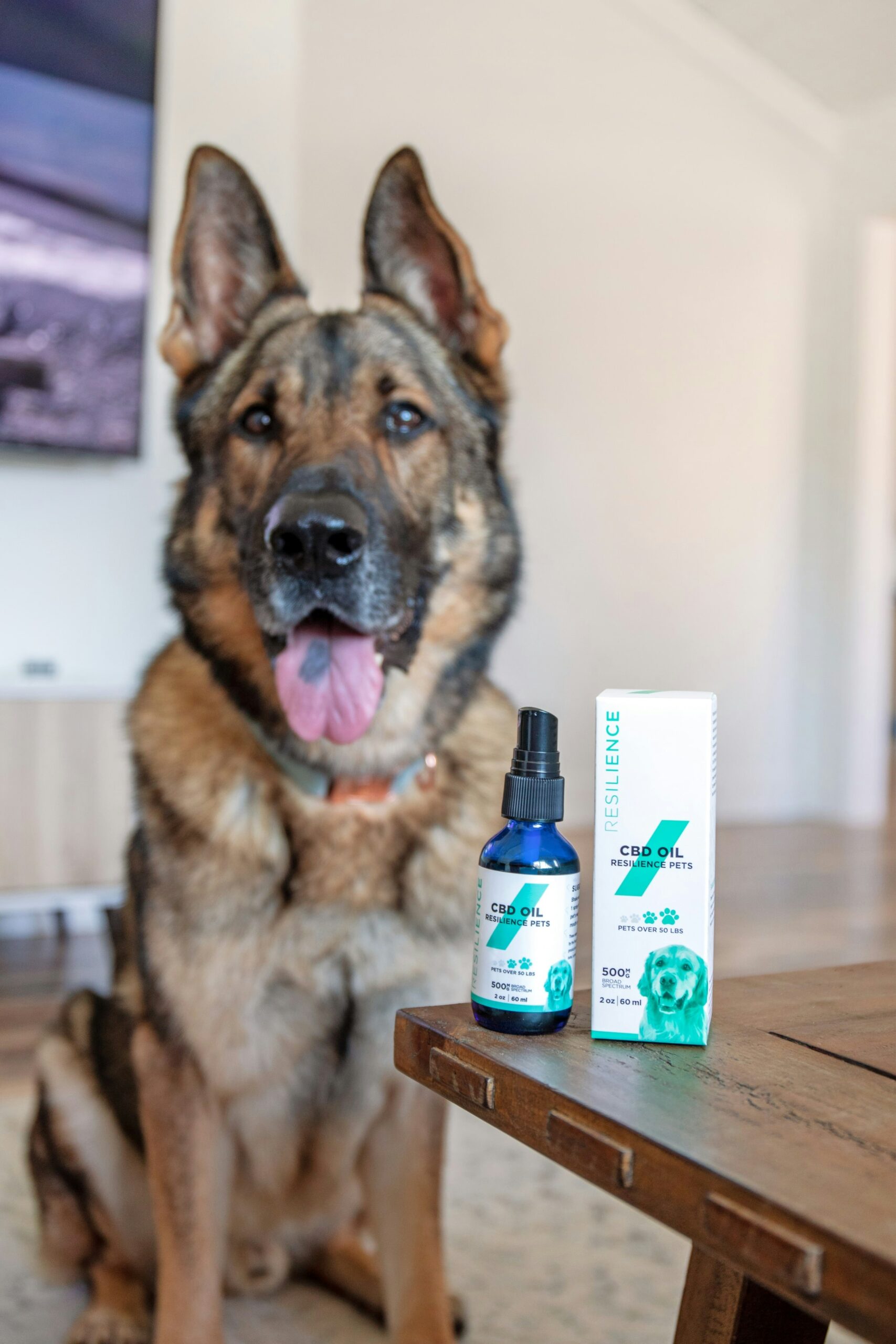The Importance of Regular Vet Checkups for Your Pet’s Health
Introduction to Regular Vet Checkups
Regular veterinary checkups are a cornerstone of maintaining your pet’s health and wellbeing. Just as humans benefit from periodic medical examinations, pets too require consistent health evaluations to detect and address potential issues before they become significant problems. These routine visits not only ensure that your pet remains healthy but also provide an opportunity for pet owners to better understand their pet’s overall health status.
During a typical vet checkup, a comprehensive physical examination is conducted to assess various aspects of your pet’s health. This includes checking the pet’s weight and vital signs, such as heart rate and temperature. The veterinarian will also thoroughly examine the eyes, ears, mouth, skin, and coat for any abnormalities or signs of infection or illness. Additionally, the vet will typically listen to the pet’s heart and lungs to detect any irregularities that may indicate underlying health issues.
Beyond the physical examination, regular vet checkups often include diagnostic tests such as blood work, urinalysis, and fecal screenings. These tests are crucial for identifying hidden health conditions that may not be immediately visible during a physical exam. For instance, blood tests can reveal issues related to organ function, blood count, and metabolic health, while urinalysis can help detect urinary tract infections or kidney problems. Fecal screenings are essential for identifying parasites and other gastrointestinal issues.
The benefits of regular veterinary checkups extend beyond early detection of health issues. These visits also allow for timely vaccinations, dental cleanings, and parasite control, all of which are integral to maintaining your pet’s overall health. Furthermore, regular interaction with the veterinarian helps foster a trusting relationship between you, your pet, and the vet, ensuring that your pet receives the best possible care throughout its lifetime.
In summary, regular vet checkups play a vital role in preventive healthcare for pets. They provide a comprehensive overview of your pet’s health, enable early detection and intervention of medical conditions, and contribute to a longer, healthier life for your furry companion.
Early Detection of Health Issues
Regular veterinary checkups play a pivotal role in identifying health issues at an early stage, providing a crucial opportunity for effective interventions and potentially lowering treatment costs. These routine visits allow veterinarians to perform comprehensive examinations that can pinpoint emerging issues before they manifest into severe or unmanageable conditions.
During a standard checkup, veterinarians commonly look for signs of dental issues, which, if left untreated, can lead to periodontal disease and other complications. Dental cleanings, plaque removal, and thorough examinations of the teeth and gums are part of this process, helping to maintain oral health and prevent more serious problems down the line.
Skin conditions are another area of focus during vet visits. Routine checks can uncover issues such as allergies, infections, and parasites. Early detection of these problems allows for timely intervention with treatments like topical medications, dietary changes, or preventive measures to avoid recurrence.
More critically, regular vet checkups can identify early signs of chronic diseases such as diabetes, arthritis, and kidney disease. Simple diagnostic tests and careful observation during these visits enable the veterinarian to monitor your pet’s health indicators closely. Early diagnosis of chronic conditions often means more effective management through medications, dietary adjustments, and lifestyle changes, significantly enhancing your pet’s quality of life.
Moreover, these exams are not just about identifying illnesses; they are also preventative. Vaccinations, parasite control, and health screenings performed during regular visits are integral to preventing the onset of various contagious diseases and health complications. Regular vet checkups, therefore, are essential in maintaining your pet’s overall well-being and longevity.
Preventive Care and Vaccinations
Preventive care forms the cornerstone of a comprehensive health strategy for your pets. Regular vet checkups allow for early detection of potential health issues and the implementation of timely interventions. One critical element of preventive care is vaccinations. Vaccinations protect your pets from contagious and potentially fatal diseases. Following a vaccination schedule recommended by your veterinarian ensures that your pet receives the necessary shots at the right times, safeguarding their health and preventing the spread of diseases.
Parasite control is another vital component of preventive care. Parasites, such as worms and fleas, can cause severe health problems in pets. Regular deworming and flea control measures can significantly reduce the risk of infestations. Your veterinarian can recommend appropriate treatments based on your pet’s specific needs and lifestyle. Routine administration of these treatments helps maintain your pet’s overall wellbeing and protects them from the adverse effects of parasites.
Dental care is often overlooked but is essential to your pet’s overall health. Regular dental checkups, coupled with at-home dental hygiene practices, can prevent periodontal disease, which can lead to more severe health problems if left untreated. Your vet can demonstrate proper dental care techniques and recommend products to keep your pet’s teeth and gums healthy.
Routine vet visits ensure that all aspects of preventive care, including vaccinations, parasite control, and dental care, are up-to-date. Regular checkups enable vets to monitor your pet’s health continuously and adjust their preventive care plan as needed. Staying vigilant about preventive care through consistent veterinary visits is crucial for maintaining your pet’s long-term health and quality of life.
Nutritional Advice and Weight Management
Regular veterinary checkups provide an invaluable opportunity to receive expert nutritional advice and weight management strategies tailored specifically for your pet. During these assessments, veterinarians meticulously evaluate your pet’s diet and weight, ensuring they are on a path to optimal health. This evaluation includes examining your pet’s body condition score (BCS), monitoring changes in weight, and discussing dietary habits to ensure your pet receives balanced nutrition suited to their life stage and health status.
Maintaining a healthy weight is crucial for your pet, as obesity can lead to a myriad of health problems such as diabetes, joint disorders, heart disease, and a decreased lifespan. Veterinarians offer guidance on feeding practices, helping pet owners avoid common pitfalls such as overfeeding or providing inappropriate treats. They also offer recommendations on the type and quantity of food that best suits your pet’s specific needs, considering factors like age, breed, activity level, and any existing health conditions.
One essential tip is to measure your pet’s food portions accurately. Instead of free-feeding, which can lead to overeating, consider scheduled feedings with measured amounts. Transitioning to high-quality, nutritionally balanced pet food, as recommended by your veterinarian, ensures your pet receives the essential nutrients required for their overall well-being. It’s important to avoid feeding pets table scraps, as human food often contains ingredients that can be harmful or toxic to animals.
Incorporating healthy treats and ensuring they make up no more than 10% of your pet’s daily calorie intake can aid in maintaining an ideal weight. Regular physical activity is another critical component. Veterinarians can suggest appropriate exercise routines and activities that promote fitness without overstressing your pet’s body.
In conclusion, adhering to the nutritional advice and weight management guidelines provided during vet checkups is fundamental to your pet’s health. These practices not only help prevent obesity-related issues but also enhance the overall quality of life for your furry companion. Regular check-ins with your veterinarian ensure that your pet’s dietary needs are continually met as they grow and change.
Monitoring Chronic Conditions
Regular veterinary checkups are paramount for pets diagnosed with chronic conditions such as diabetes, arthritis, or heart disease. These ongoing health issues necessitate diligent observation and immediate intervention to ensure that pets not only live longer but also maintain a higher quality of life despite their ailments. By consistently monitoring these conditions, veterinarians can make necessary adjustments to treatment plans, thus better managing the chronic disease.
An integral part of managing chronic conditions involves regular health evaluations, which include physical examinations, detailed blood work, and other diagnostic tests. These procedures aim to track the progression of the disease and detect any complications early. For instance, a pet with diabetes requires frequent blood glucose checks to ensure that insulin levels are appropriately managed. Any irregularities spotted during these checkups can prompt immediate changes to their treatment regimen, averting severe health crises.
Moreover, pets suffering from arthritis benefit significantly from routine vet visits. Arthritis often involves degrees of degenerative joint pain that can fluctuate over time. Through regular examinations, veterinarians can ascertain the efficacy of the current pain management strategies. Adjustments might include integrating new medications, recommending physical therapy, or even suggesting specific dietary changes that could alleviate discomfort and improve mobility.
Heart disease in pets, another critical chronic condition, necessitates vigilant observation through scheduled vet checkups. Veterinarians monitor heart performance through imaging studies, EKGs, or blood pressure measurements. These assessments enable the fine-tuning of medications aimed at aiding cardiac function and managing symptoms such as coughing, lethargy, or difficulty breathing. Timely intervention based on these evaluations can prevent worsening of the disease and offer relief to the pet.
In essence, regular veterinary visits for pets with chronic conditions foster a proactive approach in healthcare management. By keeping a close eye on the progression of these ailments and making timely adjustments to the treatment plans, pet owners can significantly enhance the overall wellbeing of their furry companions.
Regular veterinary checkups go beyond just physical health; they are crucial for understanding and managing your pet’s behavior. Veterinarians are well-equipped to conduct comprehensive behavioral assessments during these routine visits. Such assessments provide valuable insights into common behavioral issues like anxiety, aggression, and destructive behaviors that many pets exhibit.
Pet anxiety can manifest through excessive barking, restlessness, or even physical symptoms such as trembling. Left unaddressed, this condition can significantly affect your pet’s quality of life and your household harmony. Aggression, another behavioral issue, can not only be a risk to other animals and people but may also place your pet in stressful situations frequently. Additionally, destructive behaviors like chewing furniture or inappropriate elimination can lead to frustrating and costly problems for pet owners.
A veterinarian’s assessment during a regular checkup can help identify the underlying causes of these behavioral issues. Whether anxiety stems from separation, social interactions, or environmental conditions, vets can offer tailored advice and treatments. With their specialized training, veterinarians can recommend behavior modification techniques or training plans specifically designed to address these issues. For more severe conditions, medication might be suggested to help manage symptoms effectively.
Moreover, regular checkups serve as a platform for pet owners to discuss any behavioral changes or concerns they might have noticed. Vets can educate owners on the importance of recognizing early signs of behavioral problems and encourage proactive approaches. Training advice often includes consistent routines, reinforcing positive behavior through rewards, and establishing clear communication signals with your pet.
Incorporating behavioral assessments during regular vet visits ensures a holistic approach to your pet’s well-being. It combines physical health management with behavioral health, contributing to a happier and healthier pet. Regular vet checkups, therefore, are indispensable in maintaining not just the physical but also the emotional and psychological health of your pet.
Building a Lifelong Veterinary Relationship
Establishing and maintaining a lifelong relationship with your veterinarian is essential for your pet’s long-term health and well-being. A veterinarian who has a comprehensive understanding of your pet’s medical history can provide more personalized care. This insight into your pet’s history allows the vet to make informed decisions about treatment options, preventive care measures, and nutrition advice tailored specifically to your pet’s needs.
Having a consistent veterinary relationship also facilitates the early detection of potential health issues. Veterinarians familiar with your pet’s normal behavior and baseline health statuses can more easily identify subtle changes or early signs of illness. This proactive approach greatly enhances the chances of successful interventions and management of health conditions before they become severe.
In addition to medical advantages, a longstanding relationship with your veterinarian provides emotional support for both you and your pet. Trust and familiarity can significantly reduce the stress and anxiety associated with vet visits. Your pet feels more at ease in a known environment, and as a pet owner, you gain peace of mind knowing you have an expert who genuinely understands and cares for your pet’s needs. This mutual trust fosters a collaborative approach to your pet’s healthcare, ensuring that their well-being is consistently monitored and prioritized.
Furthermore, a trusted veterinarian is an invaluable source of expert advice. From vaccine schedules to dietary recommendations and lifestyle adjustments, having a go-to professional means you are always guided by informed, reliable opinions. This expert advisory role can help you navigate the complexities of pet care, providing you with the confidence to make the best decisions for your pet’s health.
Overall, the benefits of building a lifelong relationship with your veterinarian are multifaceted. It ensures continuity of care, allows for personalized treatment, offers emotional reassurance, and affords consistent access to specialized advice, all of which contribute to the sustained health and happiness of your pet.
Conclusion: Prioritizing Your Pet’s Health
The significance of regular vet checkups cannot be overstated when it comes to the well-being of your pet. Throughout this blog, we’ve detailed how these routine visits are essential in ensuring early detection and prevention of potential health issues. Consistent veterinary care allows for timely interventions, mitigating the risk of diseases worsening or becoming irreversible. We’ve also seen that comprehensive checkups can cover a range of essential evaluations, from dental health to weight management, further contributing to your pet’s overall health.
By prioritizing regular vet visits, pet owners can maintain a detailed health record for their pets, making it simpler to identify any deviations from their normal state of health. This proactive approach not only helps in spotting issues early but also in managing chronic conditions effectively. Regular checkups also provide opportunities for vaccinations and parasite control, both of which are pivotal in safeguarding your pet from infections and illnesses.
The benefits of these checkups extend beyond physical health; they also offer valuable guidance on behavioral and nutritional needs. Veterinary professionals can provide tailored advice, ensuring that pets receive optimal care suited to their specific requirements. By staying proactive and informed, pet owners can foster a nurturing environment that promotes longevity and quality of life.
In essence, integrating regular vet checkups into your pet’s healthcare regimen is a fundamental step towards ensuring their well-being. This commitment not only prevents the escalation of health issues but also fortifies the bond between you and your pet, rooted in the assurance that you are providing the best possible care. For a happier, healthier life for your furry friend, make it a priority to schedule and adhere to routine veterinary visits. Your pet’s health is a reflection of the care and attention they receive, underscoring the invaluable role of regular vet checkups in their lives.















Post Comment